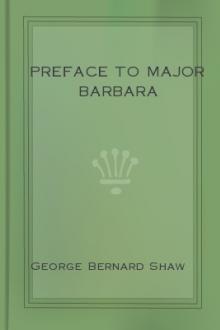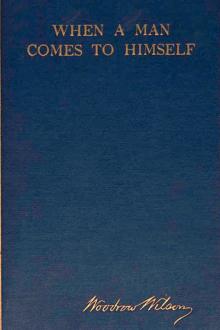The Man Who Pleases and the Woman Who Charms, John A. Cone [best business books of all time .txt] 📗

- Author: John A. Cone
Book online «The Man Who Pleases and the Woman Who Charms, John A. Cone [best business books of all time .txt] 📗». Author John A. Cone
Says a writer in Lippincott's: "It is safe to make the broad generalization that a homely girl, all other things being equal, is likely to have fewer offers than a pretty girl, but quite as likely to receive the one offer which will make her a happy wife. But all other things (save the gift of beauty) seldom are equal between the homely and the pretty girl; by the natural law of compensation, the homely girl has either some inherent or some acquired ability that is lacking in the other, which asserts its charm as acquaintance progresses. Beauty only has the start in the race."
It frequently happens that the beauty makes the mistake of expecting to be entertained by her admirers, and does not exert herself to please. The plain girl, however, is often superior in tact, for being obliged to study human nature closely in order to get the most out of companionship, she learns to depend upon this knowledge in her efforts to please. She is not dazzled by admiration, nor is she unduly confident when she obtains it that she will retain it.
Mme. Hading, who is a strikingly handsome woman, and, therefore, can discuss beauty without falling under suspicion, once said:
"A woman is very unfortunate who has nothing but beauty to insure her success. There are other things superior to beauty. Taste, good taste, brains, tact, health, those are the things a woman must have to hold people. And then there are good manners--so rare and yet so easily cultivated. To be refined, to be gentle, to be amiable, to be charitable in thought and in speech, to be intelligent, is to be charming, in spite of an unattractive body and an ugly face. To be well born is, indeed, to be blessed, but to rise above low birth is sublime. The greatest painter of the age could make only a caricature of a face for the Empress Josephine, and yet the sweetness of her smile and the charm of her pleasing and gracious ways immortalized her name. There are other ends to happiness than mere wealth; there are sweeter things in a woman's face than beauty."
Again, the woman who charms is not necessarily young. History is full of accounts of women who have been fascinating when beyond middle life. The truest and strongest love is not always inspired by the beauty of twenty. The enthusiasm over sweet sixteen is not supported by the old experience which teaches that the highest beauty is not found in immaturity. Louis XIV. wedded Mme. Maintenon when she was forty-three years old. Catherine II. of Russia was thirty-three when she seized the Empire of Russia and captivated the dashing young Gen. Orloff. Even up to the time of her death--at sixty-seven--she seemed to have retained the same bewitching power, for the lamentations were heartfelt among all those who had ever known her personally.
Cleopatra was considerably over thirty when Antony fell under her spell, which never lessened until her death, nearly ten years later.
Livia was thirty-three when she won the heart of Augustus, over whom she maintained her ascendancy until the last. Aspasia did not wed Pericles until she was thirty-seven, and for more than thirty years after that she was regarded as one of the most fascinating women of her time. Ninon de l'Enclos, the most celebrated wit of her day, was the idol of three generations of the golden youth of France, and she was seventy-two when the Abbe de Berais fell in love with her.
Helen of Troy, the celebrated Greek beauty, was over forty-five when she took part in the most famous elopement in history; and as the siege of Troy lasted ten years, she must have been at least fifty-five when the ill-fortune of Paris restored her to her husband, who is reported to have received her with unquestioned love and gratitude. Mlle. Mars, the celebrated actress, was most attractive at forty-five, and Mme. Recamier was at the zenith of her good looks and of her power to please when between thirty-five and fifty-five. Diana de Poitiers was over thirty-six when Henry II., then Duke of Orleans, and just half her age, became attached to her, and she was regarded as the first lady and the most beautiful woman at court up to the time of the monarch's death and the accession to power of Catherine de Medici.
The common idea that the mature beauty of forty is less fascinating than that of the girl of seventeen or eighteen is without foundation. By beauty is not meant merely well-formed features and a fresh complexion--these things even dolls possess. In spite of the rosy, fresh complexion bestowed upon youth by nature, a woman's best and richest age is really between thirty-five and forty-five, and sometimes considerably beyond that period.
No one would dare say how old Madame Patti is. Everyone who meets her exclaims at her marvellous youthfulness and vivacity. Patti's explanation of her bright eyes, smooth skin and happy expression is given in a few words: "I have kept my temper. No woman can remain young who often loses her temper."
As a woman grows older, she ought to become more attractive in certain ways than she could be in her youth. One of the most needful things for attaining this result is good health. Fine muscles, a healthy, glowing skin, eyes bright with energy and ambition--these make a valuable foundation for the woman who would be attractive. The woman who, at a certain age, considers herself passe, commits a great error. If she so regards herself; if she believes she has passed the time when she can be interesting, others are quite likely to find her unattractive. Surely a woman should be more interesting after she leaves the period of girlhood. She ought to be able to converse better, she should possess more wisdom, greater tact, broader knowledge of human nature; and she should have more repose, more grace of manner. Indeed, she should have all her accomplishments well in hand, and be more facile in their use for the pleasure of others; and she will be able to use them to better advantage if she has cultivated placidity of temper, human sympathy and generosity, and is not careless of her personal appearance. It frequently happens that women who have reached middle life neglect many of the aids to physical beauty which they once carefully followed. They are careless about dress, and grow to esteem it excusable to dispense with those simple and necessary accessories of the toilet which formerly helped to make them so exquisitely fresh and dainty. They grow accustomed to think that untidiness must necessarily be associated with drudgery. But in these days it is becoming more possible to carry the element of refinement and beauty with us everywhere.
Many women could seem much finer, more delicate than they appear, if they were not accustomed to think that a certain homeliness, and even negligence of attire is quite excusable, and, indeed, almost inseparable from common work-a-day life. As we grow older, it becomes more necessary that we use care in always presenting that appearance of personal neatness which never fails to be attractive to those with whom we come in contact.
One of the strongest elements a woman can possess to attract the other sex is a sympathetic interest in a man's work. This was what attracted Dr. Schliemann, the famous Greek scholar and explorer, to the young woman whom he married. She was familiar with the Iliad and the Odyssey, and was an enthusiast upon the subject of uncovering the ancient cities of Homer.
Men like to have women interested in the things in which they themselves are interested.
One who has read Richard Harding Davis' "Soldiers of Fortune" may remember that Clay grew very fond of Miss Langham. His first disappointment in her came to him when he discovered her lack of interest in his work of opening up the iron mines in South America. Miss Langham's younger sister, Hope, was, on the other hand, extremely interested in the mines, made an exhaustive study of the methods of mining, and when she, with the other members of the family, visited the scene of Clay's engineering operations, it was she who drew Clay's attention to herself by intelligent questions and suggestive remarks. He was delighted with her, admired her, fell in love with her, and then married her. That day at the mines was the beginning of the end of the old love, and the awakening of the new.
To interest men a woman should, by reading the papers, acquire, and be able to express, a reasonably clear idea of what is happening in the world. She should ascertain what is of special interest to the particular man she wishes to attract, and, whether the subject be politics, business, out-door sports, art, science, or literature, she should be able to contribute something in a conversation upon that subject more interesting than a mere yes or no.
As it is the manly man who wins and satisfies a good woman, so it is the womanly woman who pleases and retains the regard of the estimable man.
Men like the womanly woman. She need not be soft or silly, weak or nervous; she may be strong, vigorous, resolute, and brave. A man has little sympathy for the girl who imitates men either in dress, manner or conversation. If a womanly man is not pleasing to either sex, what shall we say of a manlike woman!
He thoroughly expresses the writer's view who said: "A perfect woman may be adorable; a woman who is perfect would be beyond endurance." Yet, however irreligious a man may be himself, he always dislikes irreverence in a woman. He wishes and expects his wife to be better than he is, and, generally, she is.
Men do not like the over-dressed woman--the one who goes to the extreme of a fashion and a little further. He does not care for costliness of apparel, but he is always attracted by freshness and daintiness.
A sense of humor is a valuable gift in a woman who wishes to please. Men like the girl who sees the funny side of a thing; who can make them laugh; who can be witty without being sarcastic; who can jest and not be malicious; who can relate humorous experiences without saying things calculated to make others uncomfortable.
A man likes a woman who entertains and amuses him. Young girls often express surprise that one of their number is so popular among men. They know she is not so pretty as dozens of other girls. She is not dressed so richly as they are, yet, at a party, she will have half a dozen young men about her while they are neglected and alone. She must, they conclude, have that indefinable quality of magnetism, and that is all that can be said about it, and they could not find out the secret if they tried. But probably there is no secret about it. Although she is not pretty, and does not possess a vast amount of information, she has tact, and a quick and electric vivacity of spirit which acts as a breeze on the sluggish waters, making ripples of pleasure and laughter, and so produces an exhilarating effect upon all about her.
Many young men, if diffident or awkward, feel, it may be, a little out of place. They hardly know what to do or say, but this particular girl wakes them up, and they find themselves laughing and talking with astonishing ease. She understands how to make them feel at ease, how to draw them out, and as they associate with her they become unusually elated, and it is not at all strange that in every company they look eagerly for her presence.
While, judging from the descriptions and representations which we have of her, Cleopatra was by





Comments (0)